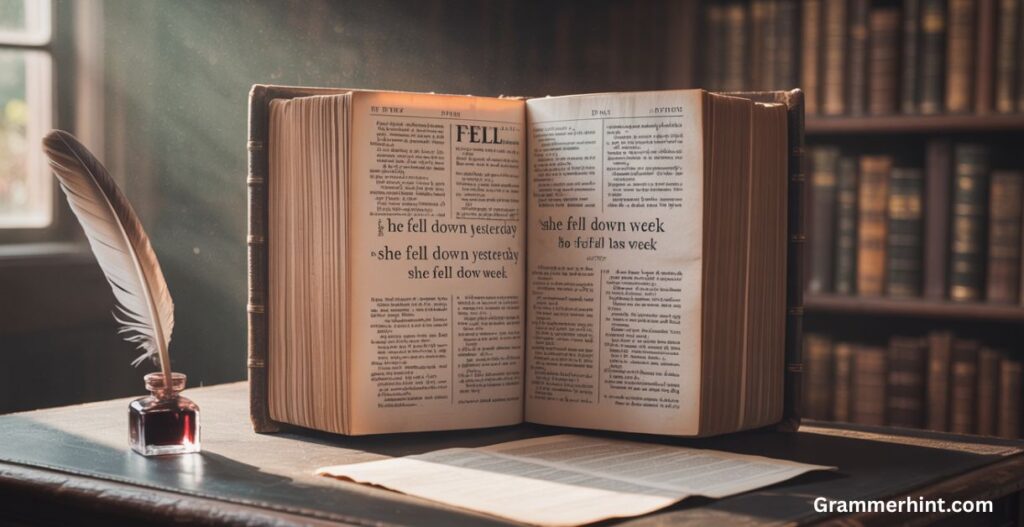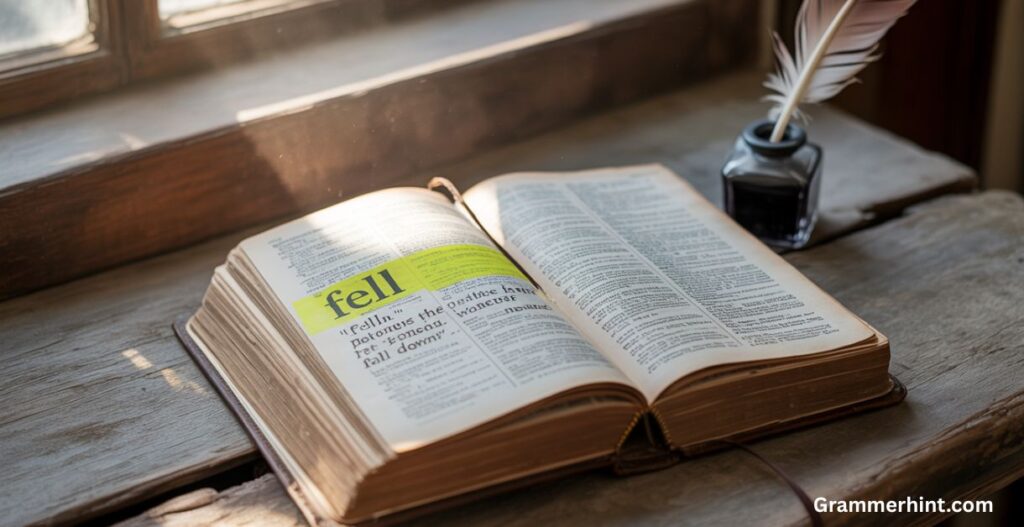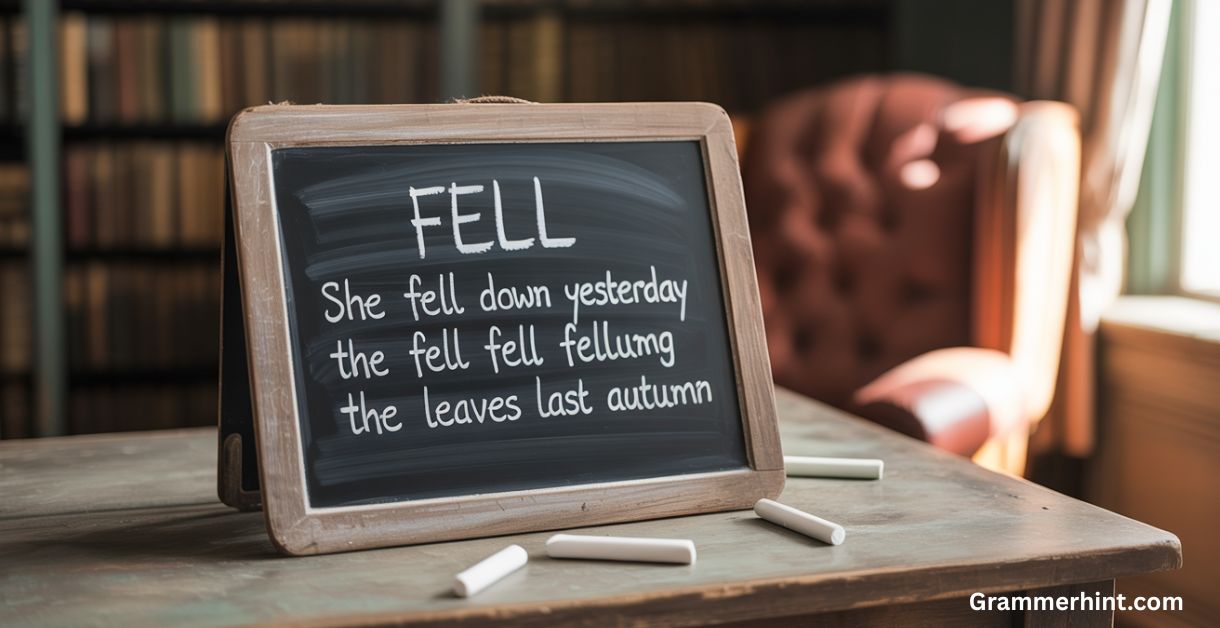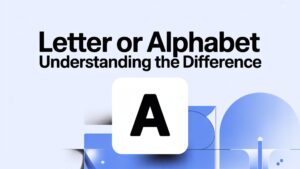What’s the Past Tense of “Fall Down”?
Many learners ask: what’s the past tense of fall down? The answer is fell down. That’s the correct form in standard English. Unlike regular verbs that simply add “-ed,” “fall” changes completely in the past tense making it an irregular verb.
This means you don’t say “fall downed” or “fall downed over.” Instead, you say: “He fell down at the park,” or “She fell down during the school play.” This shift reflects what grammarians call irregular verb conjugation.
Why the Past Tense Is “Fell Down”
“Fall” is part of a family of verbs that don’t follow regular patterns. Just like go becomes went, and come becomes came, fall becomes fell in the past simple form. Therefore, when describing something that already happened ike a slip or a tumble fell down is the grammatically correct version.
Furthermore, this form helps keep storytelling fluent and natural. Imagine you’re telling a friend, “Yesterday, I fall down.” It doesn’t sound right, does it? That’s because “fall” is in the present simple, and mixing tenses causes confusion.
What Does the Phrase “Fall Down” Mean?

The phrase “fall down” generally means to lose balance and descend quickly from a higher to a lower position. While it’s often used literally (like when someone trips or stumbles), it can also have figurative meanings.
For example:
- A poorly built argument might “fall down under scrutiny.”
- A weak structure might literally “fall down” during an earthquake.
In everyday English, it’s used to describe dropping, collapsing, or tripping in everyday scenarios. Depending on context, it can sound humorous, dramatic, or casual.
A Simple Tense Table
To fully grasp the usage of “fall down,” check out this handy breakdown of tenses:
| Tense | Example | Function |
|---|---|---|
| Present simple | I fall down a lot when I run. | General truths or habits |
| Past simple | She fell down the stairs. | Completed action in the past |
| Future simple | He will fall down if he keeps skipping leg day. | Predicted future event |
| Present continuous | I am falling down right now! | Ongoing action happening now |
| Past continuous | I was falling down when the phone rang. | Interrupted past action |
| Future continuous | I will be falling down during practice. | Action happening at a future time |
| Present perfect | I have fallen down twice today. | Action with present relevance |
| Past perfect | I had fallen down before they arrived. | Action completed before another past action |
| Future perfect | By this time tomorrow, I will have fallen down five times. | Completed before a specific time in the future |
| Present perfect continuous | I have been falling down all day. | Ongoing action from the past to the present |
| Past perfect continuous | I had been falling down a lot before I got new shoes. | Ongoing past action before another past event |
| Future perfect continuous | By next year, I will have been falling down less often. | Ongoing action leading up to a future point |
This verb conjugation chart provides a clearer understanding of how “fall down” works in different contexts. As a result, learners can use the correct past tense, future simple, or even past perfect continuous forms with confidence.
Origin of the Phrase “Fall Down”
Etymologically, “fall” stems from the Old English feallan, meaning “to drop, fail, or die.” Over centuries, English speakers added “down” to emphasize the direction of the action. While other languages might use a single verb for descending, English often prefers phrasal verbs like this one.
Interestingly, though many verbs have regular past tense forms (walk → walked, jump → jumped), fall resisted those trends. It stayed irregular, resulting in the less intuitive but grammatically correct fell as the past of fall.
Using “Fall Down” and “Fell Down” in Sentences
Sentences Using “Fall Down” (Present)
Let’s look at some real-world examples using present simple and present continuous forms:
- Email from a student to a teacher: Hi Ms. Rivers,
Every time I get up to speak during the school play rehearsals, I fall down out of nervousness. I think I need more practice. - In conversation: At the ice rink, kids fall down all the time. It’s part of the learning curve.
- Social media post: I am falling down the YouTube rabbit hole again. Send help.
Sentences Using “Fell Down” (Past)
Here are examples in past simple and past continuous forms:
- Message to HR: Hello Team,
Just a quick update: someone fell down the old staircase on the third floor yesterday. Facilities is investigating, and safety signs will be installed by the end of the day. - In a personal blog: Last summer, while hiking near the cliffs, I fell down and twisted my ankle. A kind stranger helped me get back on my feet.
- In fiction: She was falling down just as the spotlight hit her—completely ruining her dramatic monologue during the school play.
- Casual text: Bro, I totally fell down in front of everyone during yoga class today.
By blending formal and informal examples, it becomes easier to see how to use fell in a sentence.
Synonyms of “Fall Down” and “Fell Down”
Synonyms for “Fall Down”
These alternatives suit present or general expressions:
- Trip
- Stumble
- Lose balance
- Drop
- Collapse
- Descend quickly
- Slip
For instance:
I often trip while jogging through the park, especially when the path is uneven.
Synonyms for “Fell Down” (Past Tense)

Past tense equivalents include:
- Tripped
- Stumbled
- Lost balance
- Collapsed
- Dropped
- Plummeted
Consider this sentence:
While crossing the crowded market, Adeel stumbled on a crack and fell down right in front of a fruit stall.
These synonyms of fall down add variety and nuance to your storytelling or writing.









